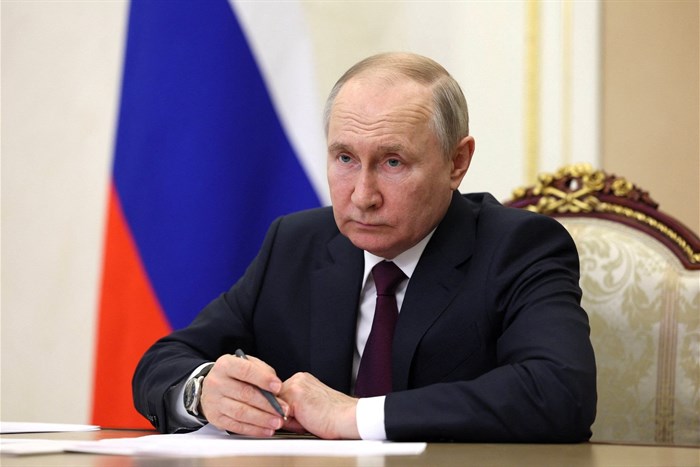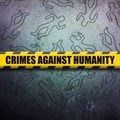South Africa is mulling its options over the International Criminal Court (ICC) arrest warrant for Russian President Vladimir Putin should he accept an invitation to a BRICS summit in August, a government official said on Wednesday.

File Photo: Russian President Vladimir Putin chairs a meeting with government members via a video link in Moscow, Russia 31 May 2023. Sputnik/Gavriil Grigorov/Kremlin via Reuters
A member of the ICC, South Africa would theoretically be required to arrest Putin under the warrant issued in March by the court, which accused him of the war crime of forcibly deporting children from Russian-occupied territory in Ukraine.
Moscow denies the allegations.
However, South Africa had on 25 January already invited Putin to the 22-24 August meeting in Johannesburg of BRICS leaders of emerging economies, comprising Brazil, Russia, India, China and South Africa.
"There has been no firm decision," said Zane Dangor, director-general of the department of international relations, adding that ministers assigned to the matter would soon meet to consider a report setting out the options.
One option gaining traction among South African officials would be to ask the group's previous chair China to host the summit, said a senior government official, who spoke on condition of anonymity.
Asked whether Putin would attend the gathering, the Kremlin said on Tuesday that Russia would take part at the "proper level".
Former President Thabo Mbeki, whose views on international relations hold a lot of sway among government officials, said in a 25 May interview with radio station 702 that the summit was unlikely to take place in South Africa.
"Because of our legal obligations, we have to arrest President Putin, but we can't do that," Mbeki said.
A deputy minister, Obed Bapela, told Britain's BBC on Tuesday that South Africa was planning to pass legislation that would give Pretoria the option to decide whether or not to arrest leaders wanted by the ICC.
Bapela did not respond to requests for comment. However, a justice department official, speaking on the condition of anonymity, said there wouldn't be enough time to get such a law approved by parliament before the summit.
Lionel Egypt and Sarah McGibbon 7 Sep 2017 South Africa on Monday issued diplomatic immunity to all leaders attending the meeting and a gathering of BRICS foreign ministers in Cape Town this week. The international relations department said this was standard procedure, however, for all international conferences in South Africa.
"These immunities do not override any warrant that may have been issued by any international tribunal against any attendee of the conference," department spokesperson Clayson Monyela said.
South Africa previously signalled its intention to withdraw from the ICC following protests about its failure to arrest Sudan's former president Omar al-Bashir, wanted on genocide charges, when he attended an African Union summit in Johannesburg in 2015.
The governing African National Congress decided in December that South Africa should abandon the process and try to effect changes to the ICC from within.



















